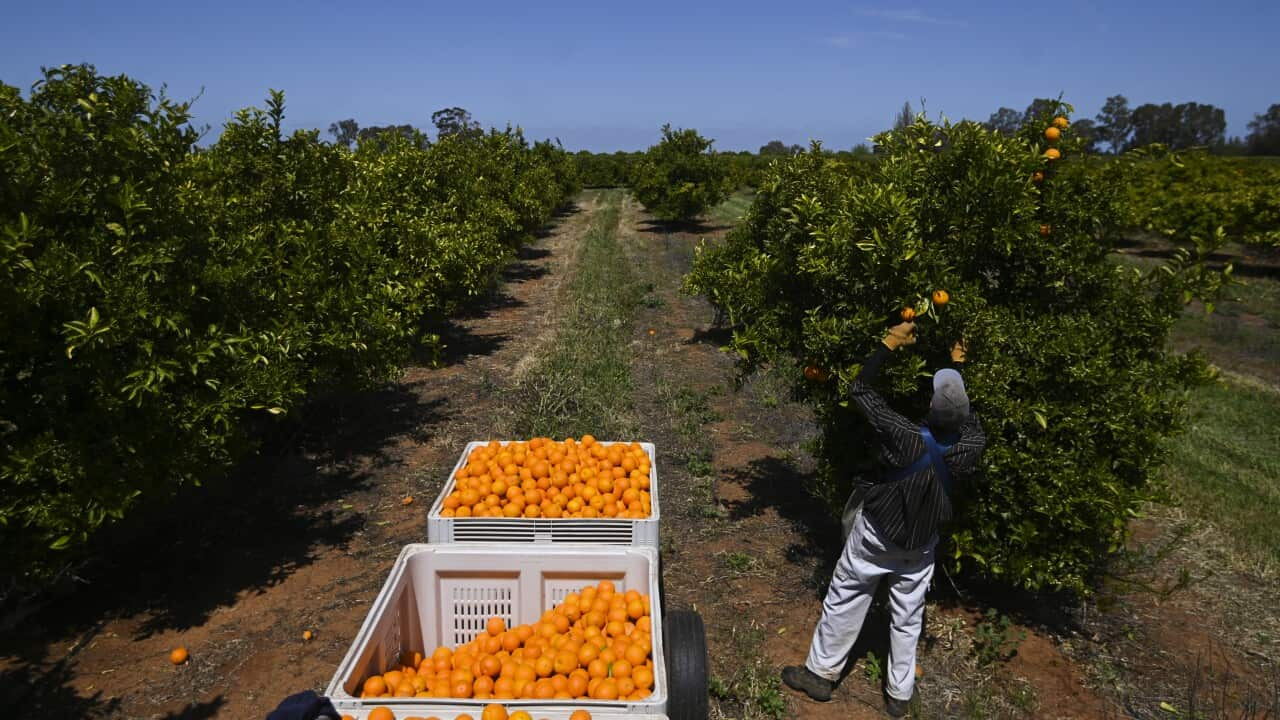Unions have savaged the Albanese government after it quietly abandoned weekly hours guarantees for more than 14,000 Pacific workers.
The Pacific Australia Labour Mobility scheme (PALM) allows workers from across the region, including Vanuatu, Fiji and East Timor, to work in industries where there are not enough local workers available.
The vast majority work in the agriculture and meat processing industries.
In 2023, the government announced the scheme's 14,300 short-term workers would be guaranteed 30 hours of work each week, due to be introduced in April next year.
But on Tuesday, the scheme's website was quietly updated to confirm the pledge had been dropped — and an existing transitional requirement for 120 hours of work averaged over four weeks will be made permanent.
A factsheet stated the requirement "for employers to offer short-term workers 120 hours of work reconciled over 4 weeks has been established as ongoing and will no longer end on 31 March 2026".
The document states that employers unable to offer at least 120 hours of work over the four weeks will have to pay workers an income equivalent to that time.
The move has drawn heated condemnation from the Australian Council of Trade Unions (ACTU), which remains concerned that many short-term workers are being left financially vulnerable under the PALM arrangements.
An SBS News investigation in April found more than 7,000 workers had abandoned the PALM scheme over the past five years, citing exploitation and abuse.
"The government's failure to uphold its commitment to protect vulnerable PALM workers from exploitation by delivering minimum hours is a backwards step for workers’ rights in Australia," ACTU president Michele O'Neil said.
"Unions urge the government to reconsider its position and implement its promised 30 hours per week requirement so PALM workers can be treated fairly and afford the basics they need to survive."
The PALM scheme has been heavily promoted by government ministers during visits across the Pacific, where Australia is seeking to strengthen its diplomatic ties.
"All PALM workers and employers deserve to have a safe, secure and rewarding experience under the scheme," Employment and Workplace Relations Minister Amanda Rishworth told SBS News in a statement on Wednesday.
"Keeping the current arrangements will continue to ensure income security for PALM workers, while allowing PALM scheme employers flexibility to deal with unexpected disruptions, such as natural disasters."
"There has been strong compliance by employers to their minimum hours obligations under current arrangements, providing PALM workers with the income security they need."
Farmers and employer groups had labelled the proposed changes unworkable, arguing they failed to reflect the nature of seasonal work.
Richard Shannon, the executive officer of the National Farmers' Federation Horticulture Council, said growers "planning for the worst" from April would welcome the clarity around the scheme's future, but warned the guarantees risked being a "handbrake" on the scheme's viability for employers.
"This particular setting, more than any other, is the one that is causing the pain," he told SBS News.
He said concerns raised by unions around worker exploitation as "baseless", citing government audits of employers showing "no workers were receiving less than 30 hours of work anywhere".
"This has crippled the scheme, and there's no evidence to suggest they've solved a problem here," Shannon said.
However, the measure never had the support of the Opposition, which called the guarantee "unworkable" and pledged during the election to review the PALM scheme.
On Wednesday, Opposition Pacific affairs spokesperson Jason Wood said the "rigid 30-hour weekly minimum" was "doomed from the start".
"It completely ignored the seasonal and weather-dependent nature of farm work," he told the Australian Associated Press.
"The government needs to stop treating regional employers as an afterthought and start working with them to strengthen, not sabotage, the PALM scheme."
For the latest from SBS News, download our app and subscribe to our newsletter.

